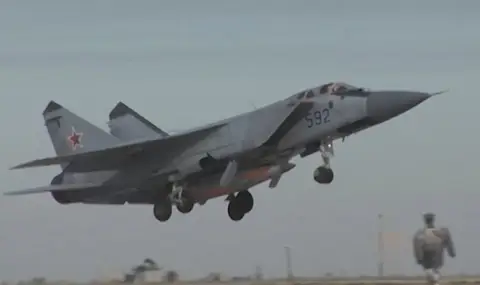The defense ministers of the Baltic states have warned that a ceasefire in Ukraine will sharply increase the security threat in the region, as Russia will continue to implement plans to rearm and transfer troops to NATO's northeastern flank, warns the Financial Times.
According to the publication, Estonia, Latvia and Lithuania are concerned that Moscow will not stop at Ukraine and emphasize that the Kremlin has already outlined plans to increase military production and deploy additional troops on their borders.
"We all understand that when the war in Ukraine is stopped, Russia will very quickly redeploy its forces. "This means that the threat level will also increase very quickly," Estonian Defense Minister Hanno Pevkur told the Financial Times.
Lithuanian Defense Minister Dovilė Šakalenė made similar remarks during a recent visit to the United Kingdom:
"Let's not have any illusions. Let's not delude ourselves that Russia will be finished after Ukraine. Russia will use the time after the ceasefire to accelerate the build-up of its military potential. They already have a huge, combat-trained army that will become even bigger.“
Pevkur believes that of the 600,000 Russian soldiers currently estimated to be in Ukraine, 300,000 will be relocated to other areas.
"These people will not return to different parts of Russia to harvest corn or do anything else, because the salary they receive in the army is five to ten times higher than what they could get in their hometown,“ he noted.
The Baltic states are particularly concerned about the large-scale military exercises "Zapad", which will be held near their borders in Russia and Belarus this fall. These exercises simulate a conflict with NATO countries and involve tens of thousands of soldiers, tanks, aircraft and artillery.
NATO's eastern flank countries, including Poland and Romania, have said they cannot commit to deploying troops to Ukraine at the expense of their own security. They have also warned against transferring NATO troops from their countries to form a peacekeeping force in Ukraine.
“We cannot jeopardize the security of NATO's eastern flank. We cannot fall into the trap of our forces being somehow entrenched in Ukraine. Then we will have risks on our border,” Pevkur said.
NATO expects Russian attack
Earlier, Lithuanian President Ginatas Nauseda said his country was preparing for a possible Russian attack on NATO countries by 2030. German intelligence has also noted that Russia may be ready for a major war with NATO by the end of the decade.
At the same time, the head of Poland's National Security Bureau, General Dariusz Lukowski, stated that in the event of a war with Russia, Poland would only be able to last one to two weeks, after which it would run out of ammunition.
Baltic states fear ceasefire in Ukraine because they believe they are next
German intelligence also noted that Russia may be ready for a major war with NATO by the end of the decade
Mar 30, 2025 11:23 227
